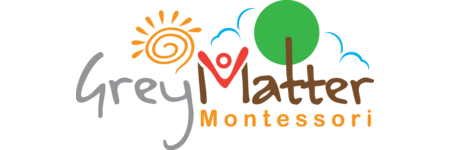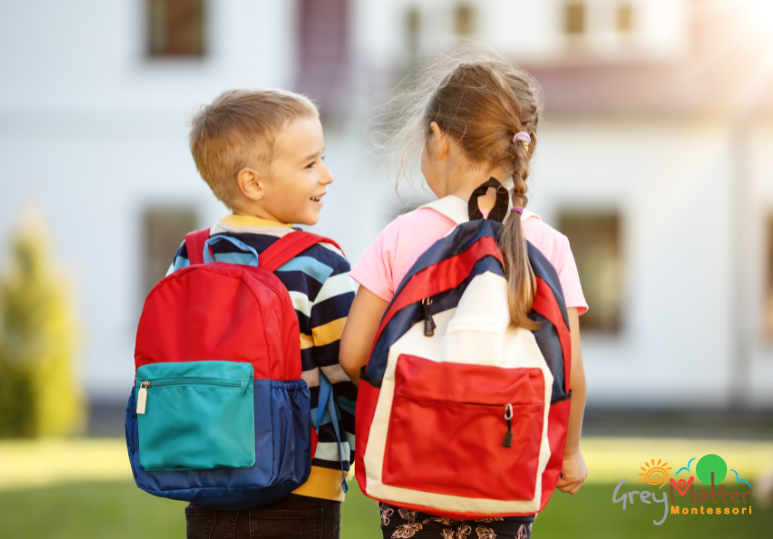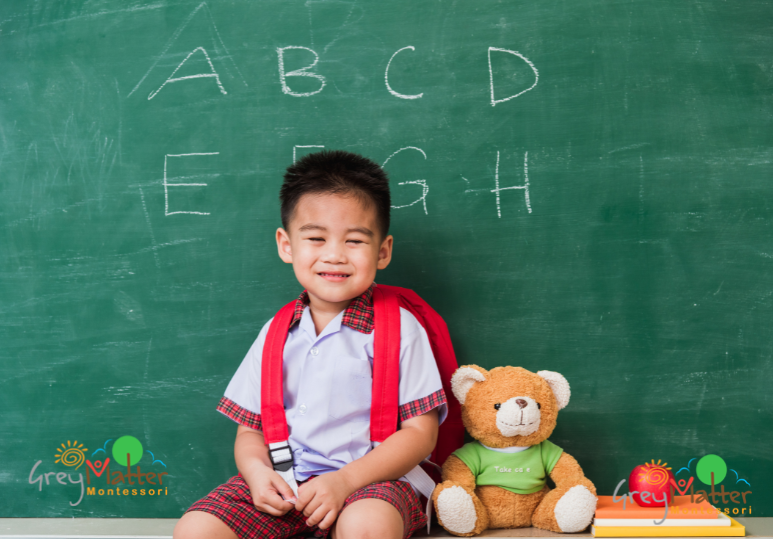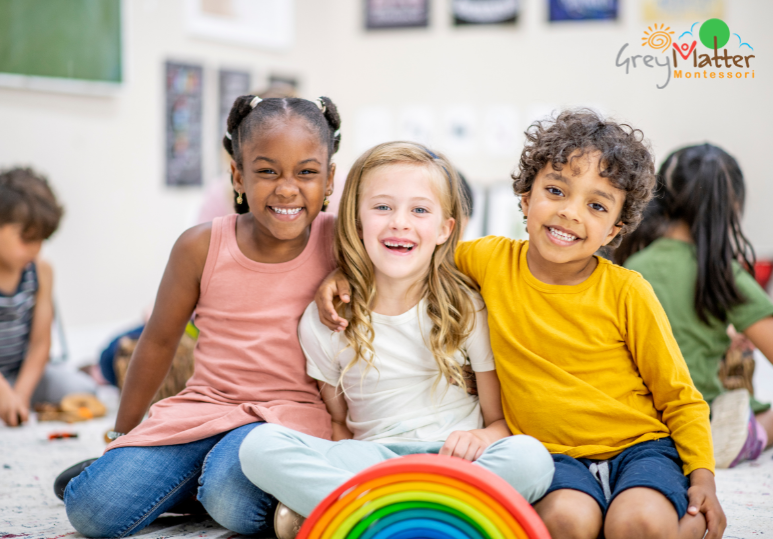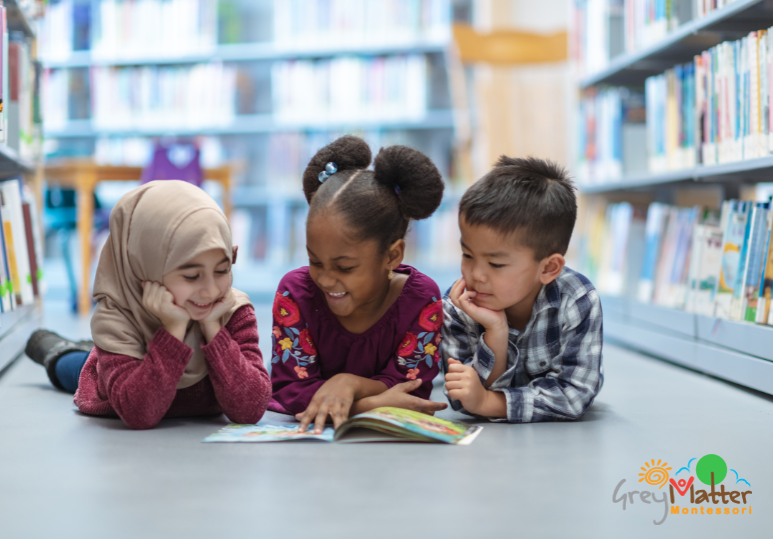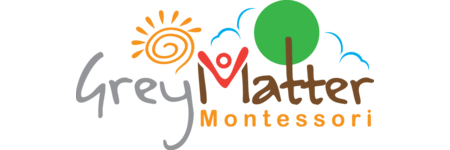As your child’s preschool years come to a close, the next big step is right around the corner—kindergarten! This transition can be exciting, but it also comes with its own set of challenges for both parents and children. Ensuring a smooth shift from preschool to kindergarten is essential to help your child feel confident and prepared for the new experiences ahead. Grey Matter Montessori in Calgary is here to offer expert advice on how to make this transition as seamless as possible. Let’s take a look at five valuable tips to help your child thrive as they move from preschool to kindergarten.
1. Foster Emotional Readiness for Kindergarten
Starting kindergarten is a big change, and emotional preparedness is key. Children may experience a mix of excitement and nervousness as they approach this milestone. It’s important for parents to help their children understand what to expect and encourage them to express any worries they may have.
You can foster emotional readiness by discussing the upcoming changes in a positive and supportive way. Role-playing school scenarios, reading books about kindergarten, and even visiting the new school beforehand can help your child feel more comfortable and less anxious. Grey Matter Montessori believes that emotional growth is as crucial as academic preparation. Therefore, acknowledging and addressing your child’s feelings about this new chapter will help them build the emotional resilience they need for kindergarten success.
2. Enhance Social Skills Through Playdates
In kindergarten, children will be interacting with a larger group of peers than they did in preschool. To ease the transition, fostering strong social skills is crucial. Arrange playdates with children who will be attending the same kindergarten or participate in group activities. This helps your child build friendships and feel more confident in social settings.
Encourage your child to practice sharing, taking turns, and using polite manners in a group setting. You can also talk to your child about teamwork and respecting others, both of which are key aspects of kindergarten life. At Grey Matter Montessori, we emphasize the importance of social development, ensuring that children are well-prepared for group environments before they enter kindergarten.
3. Strengthen Basic Academic Skills
While kindergarten will introduce more formal learning, reinforcing key skills before the big day can help your child feel more confident. Focus on simple academic activities such as recognizing letters, counting, and basic shapes. These skills don’t need to be taught in a rigid, structured way. Instead, incorporate them into everyday activities like counting objects, reading books together, or pointing out letters in your environment.
In addition to these basic skills, practicing fine motor skills—like using scissors, holding a pencil, and drawing—can be incredibly beneficial. Grey Matter Montessori’s approach to early learning encourages the development of foundational academic skills in a fun, hands-on way that supports a child’s individual growth and learning style.
4. Establish a Consistent Routine
A predictable routine can help ease your child’s anxiety about the transition to kindergarten. In the weeks leading up to the start of school, try to establish a routine similar to what your child will experience in kindergarten. This includes regular sleep patterns, meal times, and time for independent activities like reading or drawing.
Establishing a routine also means gradually adjusting bedtime and wake-up times to align with the school schedule. A consistent routine will not only make the first day of school less overwhelming but will also help your child feel secure and ready for the structure of kindergarten life. At Grey Matter Montessori, we understand the importance of routines in fostering a sense of stability and confidence in young learners. Our preschool program ensures children are ready for the transition to Kindergarten by providing emotional development and a strong foundation for their education.
5. Encourage Independence and Self-Sufficiency
Kindergarten will require children to be more independent than they were in preschool, and teaching your child how to manage small tasks on their own is important. Help them practice dressing themselves, packing their own backpack, and using the bathroom independently. These everyday tasks build confidence and give your child a sense of accomplishment.
Encouraging self-sufficiency doesn’t just help with physical tasks, but also with emotional resilience. As children gain more independence, they also learn how to manage their emotions and take ownership of their learning experiences. At Grey Matter Montessori, we empower children to become independent thinkers, fostering the skills they need to succeed in kindergarten and beyond.
Preparing for Kindergarten Success: Final Thoughts
Preparing your child for the transition from preschool to kindergarten can seem overwhelming, but with the right strategies in place, it can be a smooth and exciting experience. By fostering emotional readiness, strengthening social and academic skills, establishing a consistent routine, and encouraging independence, you can help your child feel confident and ready for this new chapter.
At Grey Matter Montessori in Calgary, we understand the importance of early education and the role it plays in setting a strong foundation for future learning. If you're looking for a nurturing and supportive environment to help your child grow and thrive, contact us today to learn more about our preschool programs and how we can support your child’s development.
Contact us and let us guide you and your child through this exciting journey into Kindergarten—together.
FAQs
Q: What are the best ways to prepare my child emotionally for kindergarten?
A: Start by talking positively about kindergarten, visit the school together, and establish a consistent routine. Contact Grey Matter Montessori today for more information regarding your child's transition and how you can be more prepared.
Q: How can I help my child become more independent before kindergarten?
A: Encourage tasks like dressing themselves, packing their bag, and making simple decisions at home.
Q: What are some signs my child is ready for kindergarten?
A: Signs include an eagerness to learn, curiosity, ability to follow simple instructions, and social readiness.
